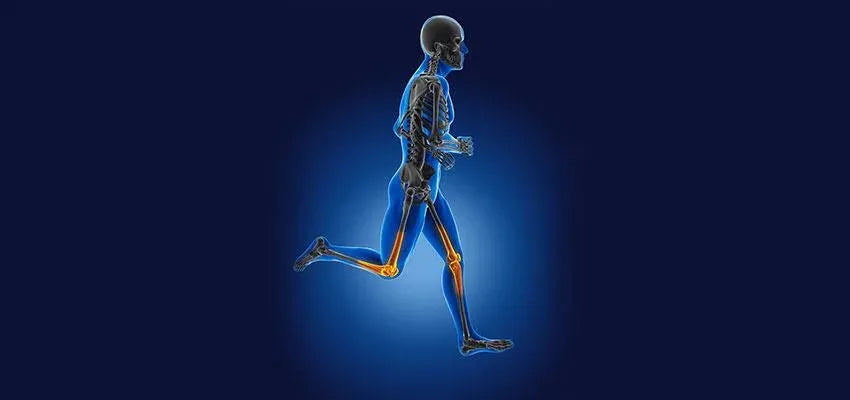Article: Sleeping well is good for aging well!

Sleeping well is good for aging well!
Aging is a series of gradual changes, which decrease the physiological functions required for survival and reproduction. As we age, sleep becomes an essential component for overall health, along with proper diet and physical activity. Genetic, environmental, and lifestyle factors also play a role in healthy aging. Adequate sleep improves an individual’s health and quality of life in various ways.
What happens to the body during sleep?
Sleep is an essential state of the body that enables the body and mind to be at rest, relax, and regenerate, resulting in renewed energy when one wakes up. Sound sleep is also important for keeping the body disease-free and healthy. Without enough sleep, the brain cannot function effectively. Sleep is of two types- non-rapid eye movement (NREM) and rapid eye movement (REM).
During sleep, each part of the body undergoes various changes. The body releases substances such as hormones and proteins, repairs cells, and replenishes energy levels. According to various studies, sleep strengthens the cardiovascular and immunological systems and helps control metabolism. Following are some of the functional changes that can be noticed while sleeping:
Breathing: As we sleep, breathing slows down during non-REM (non-rapid eye movement) and becomes irregular with REM (rapid-eye movement) sleep.
Heart Rate: The heart rate becomes slower from non-REM to REM sleep. The pulse rate increases gradually during REM to the same rate as when we are awake.
Muscle Tone: During each stage of non-REM sleep, muscles gradually relax and the overall body’s energy expenditure decreases. During REM sleep, muscles undergo a paralysed state called atonia. This keeps the legs and arms from flailing. However, the muscles in the eyes and the respiratory system continue to be active.
Hormone levels:
In response to sleep and the circadian rhythm or internal clock, various hormones are produced in the body which include the following:
- Melatonin, which aids in sleep promotion
- Growth hormone, which promotes metabolism as well as the growth of bones and muscles
- Leptin and ghrelin, which assist in appetite regulation,
- Cortisol, produced in response to the body's stress
Different stages of sleep cause different changes in hormone levels, and the quality of sleep may have an impact on hormone production, the next day.
What happens to the brain during sleep?
While we sleep, several neurons in the brain change their state from being alert to sleeping state and transmit various signals to different parts of the body. Nerve cells exchange information and rearrange themselves, supporting proper brain functioning. Brain waves during sleep exhibit distinct patterns that correspond to each stage of sleep. The activity of the brain slows down significantly in the early stages of non-REM sleep, and increases during REM sleep. Due to the increased brain activity, REM sleep is regarded as a state where we see dreams. It is also believed that REM sleep helps in cognitive functions. However, non-REM sleep, even with decreased brain activity, is also thought to play a role in memory.
How Sleep affects the brain?
Sleep affects the brain in the following ways:
- Processes and organizes new information
- Promotes creative thinking
- Removes toxic substances
- Regulates appetite
- Keeps the heart healthy
Having a sound sleep is vital for the proper functioning of the brain. Poor quality of sleep can affect one’s brain functioning and hamper daily activities.
Sleep disturbances
Sleep disturbances, often known as sleep-wake disorders, in which quantity (amount), quality, and timing of sleep is affected. It causes functional impairment and distress during the daytime. Difficulties in maintaining “sleep-wake state” frequently occur with medical conditions and mental health issues, such as depression, anxiety, or cognitive disorders. Sleep-wake disorders are of various types, with insomnia (difficulty falling or staying asleep) being the most prevalent. Obstructive sleep apnea (breathing stops for a while during sleep), parasomnias (unusual events, which disrupt sleep), narcolepsy (excessive daytime sleepiness), and restless leg syndrome (unwanted, constant movement of legs) are among other common sleep-wake disorders. Physical and emotional issues are also related to sleep disturbances. Sleep disturbance itself is a sign of mental health issues.
Consequences of lack of sleep
To work properly and efficiently, the brain needs enough sleep. Lack of adequate sleep or poor quality of sleep poses several negative effects on the health of an individual. The main issues include tiredness, low energy, irritation, and difficulty concentrating. The way individuals respond to a given situation and their decision-making capacity may be impacted due to a lack of sleep. Lack of sleep also coincides with depression, hyperactivity, and anxiety symptoms. Various studies have shown that chronic health issues, including diabetes, hypertension, and heart diseases, are associated with both inadequate and excessive sleep.
Sleep difficulties can also be an indication of neurological and medical conditions such as Parkinson's disease (a brain disorder which affects balance and coordination), osteoarthritis (a disease of the joints), and congestive heart failure. As we age, sleep disturbances can affect the body in terms of having low energy, stress, digestive issues, improper management of other medical conditions, and low chronic inflammatory conditions such as Alzheimer’s disease (loss of memory), rheumatoid arthritis (an autoimmune disease of the joints), and ankylosing spondylitis (a type of arthritis that affects the spine mostly).
Tips for having a good sleep
- Before going to bed, take a hot bath
- Before turning out the lights, take some time to settle down
- Make your bedroom a sleeping area, devoid of other activities
- Avoid taking afternoon naps
- Avoid drinking alcohol or caffeine drinks right before going to bed
- Hydrate less at nights so that you don’t need to wake up during sleep
If an individual is unable to improve their sleeping patterns, it is advisable to consult a healthcare provider to get further information on ways to sleep well. Before consulting a healthcare professional, start maintaining a sleep diary and show it to the doctor. Recording one’s alcohol, caffeine, and nicotine intake on paper, and keeping a record of prescription drugs, physical activity, recent stressful situations, and lifestyle adjustments can help the doctor to suggest a personalized treatment plan. Additional tips from a sleep expert or cognitive behavioural therapist, particularly if insomnia is severely impairing one’s mental and physical well-being may also prove to be beneficial.

